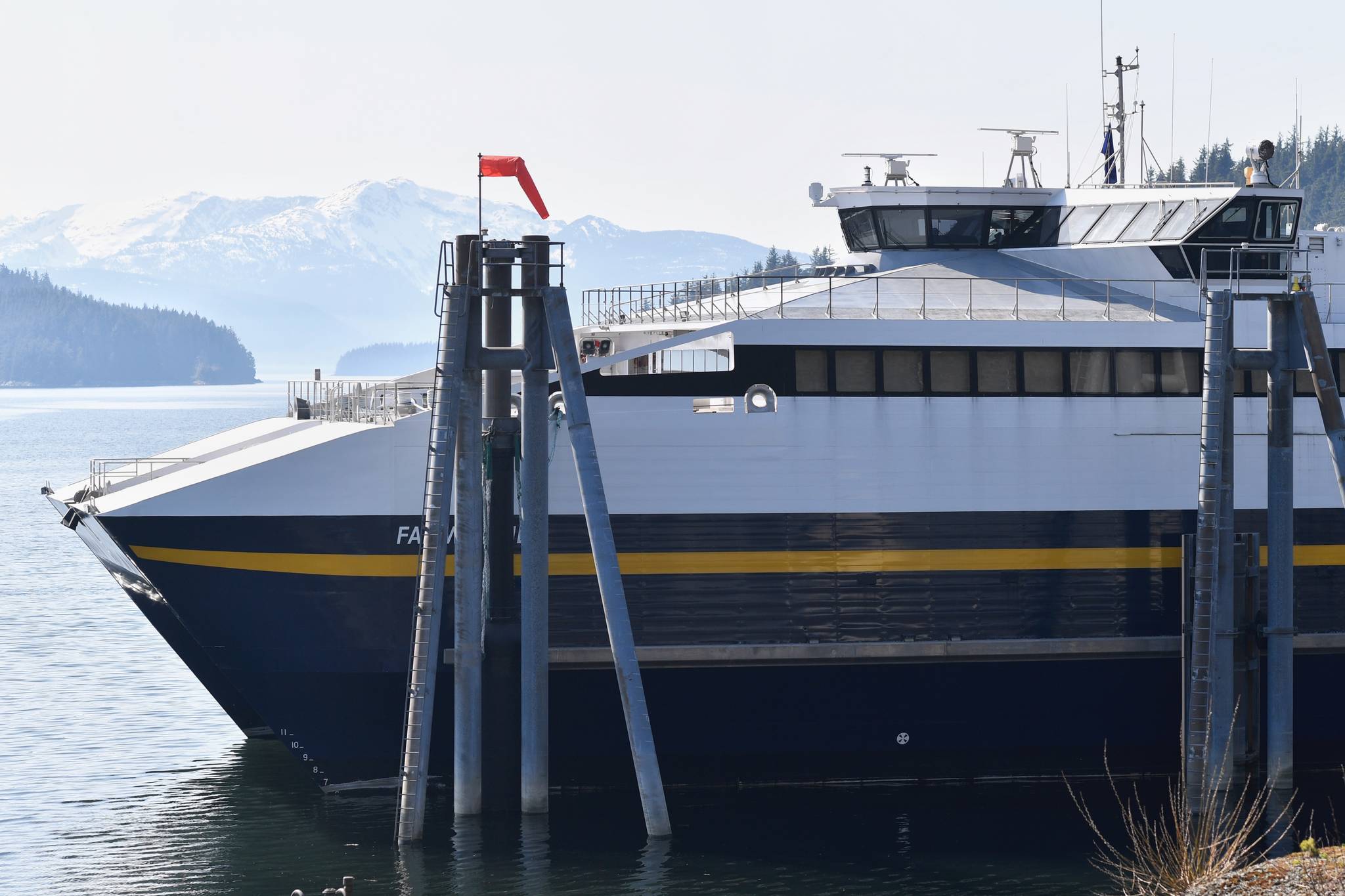In recent “battle of the budget” town hall meetings across the state, there have been few surprises. Budget-cutting resisters really know how to pack a room with emotionally charged testimony. And many people seem determined to “kill the goose that laid the golden egg” — insisting that Alaska’s largesse-fueled services are not just a benefit but a permanent entitlement.
Many testified that along with the Permanent Fund Dividend program, generous government services are sacrosanct and, if reduced, economic dislocation, widespread suffering, even death, would ensue.
Nevermind that residents living in Alaska 50 years or more got along just fine before receiving government gifts like the PFD, Medicaid expansion, pre-K programs, hefty union-negotiated retirements, 1 percent for arts, and ferries to any community that asked — just to name a few.
[Doom for the fast ferries: Two more go up for sale]
Anguished testimony about the Alaska Marine Highway System has been particularly intense. The Alaska House Majority shamelessly produced a video featuring a child weeping over the possibility she might never again see her cousins in a neighboring community.
It’s understandable people are upset over potential cuts to our ferry system. Coastal towns in Southeast, Prince William Sound and southwest Alaska rely on subsidized ferries because of the lack of inexpensive alternatives. But if we ever hope to justify continuing ferry operations, it’s important to recognize why we’re in this fix.
Some testimony compared AMHS to Alaska’s road system saying that “roads don’t make a profit” and reducing ferry service would be like “shutting down the Parks Highway.” This faulty comparison ignores the fact that 99.5 percent of Alaska’s vehicular traffic occurs on roads but historically over 80 percent of the highway operations/maintenance budget is offset by users through gas taxes and other fees. Ferries move less than 1 percent of vehicular traffic with only 30 percent of the cost paid by users.
[Opinion: No harm, no foul with city, cruise lawsuit settlement]
Yet, total AMHS expenses run about $150 million annually, almost double the cost of maintaining all Alaska’s highways.
Environmental activists and ferry unions have deliberately stalled meaningful road projects that would have made AMHS more efficient and sustainable. In 2000, after ample public process, former Gov. Tony Knowles rejected the Department of Transportation and Public Facilities’ announced Preferred Alternative for a Lynn Canal highway — instead spending almost $70 million on two untested fast ferries. Both ferries turned out to be unreliable, gas-guzzling albatrosses that have since been removed from service.
For decades, ferry boosters ignored the reality of decreasing ridership and thwarted commonsense transportation planning. Alaskans are now saddled with a system rife with inefficiency, runaway operating costs, maintenance issues with aging vessels and a state subsidy of about $100 million in Fiscal Year 2017.
For every dollar of passenger revenue, the state of Alaska contributes two dollars to keep the ferries afloat. Now we face more vessel layups, increasingly unaffordable vehicle fares and service cutbacks.
[Opinion: Invest in Alaska by investing in ferry system]
That’s what happens when emotion and politics inform our decisions. But it didn’t need to be that way.
George Davidson, former ferry system manager in the 1980s, describes in his own words why.
“While on the Southeast Conference board, I proposed a plan in 1977 to ensure the future of AMHS that SEC endorsed unanimously. The plan eliminated double crews on most vessels by operating mostly shuttle ferries. A mainline vessel would run north to Ketchikan then on to Juneau and return south. Shuttle ferries would then run from Juneau and Ketchikan to outlying communities. This “hub and spoke” system, combined with extending roads where possible, promised to greatly improve flexibility and reduce costs.”
[What are the options to extend ferry service past October?]
Unfortunately, the concept of a sensible, integrated transportation system was never implemented except in a limited way with ferry service between Ketchikan, Prince of Wales Island and Metlakatla.
The Dunleavy administration is clear-eyed about what needs to be done. Its proposed day-boat shuttle ferry service in northern Lynn Canal will be a welcome enhancement that will improve reliability and reduce costs.
The administration is also analyzing 10 other cost-saving “options available for reshaping the system.” These include raising rates, privatizing services, dropping or reducing high-cost/low-volume runs and even selling vessels and facilities to allow municipalities to operate their own service.
Some of these ideas may seem far-fetched and may not be implemented. But this is where the facts have finally led us.
Win Gruening retired as the senior vice president in charge of business banking for Key Bank in 2012
• Win Gruening retired as the senior vice president in charge of business banking for Key Bank in 2012. He was born and raised in Juneau and graduated from the U.S. Air Force Academy in 1970. He is active in community affairs as a 30-plus year member of Juneau Downtown Rotary Club and has been involved in various local and statewide organizations. He contributes a regular column to the Juneau Empire. My Turns and Letters to the Editor represent the view of the author, not the view of the Juneau Empire.


